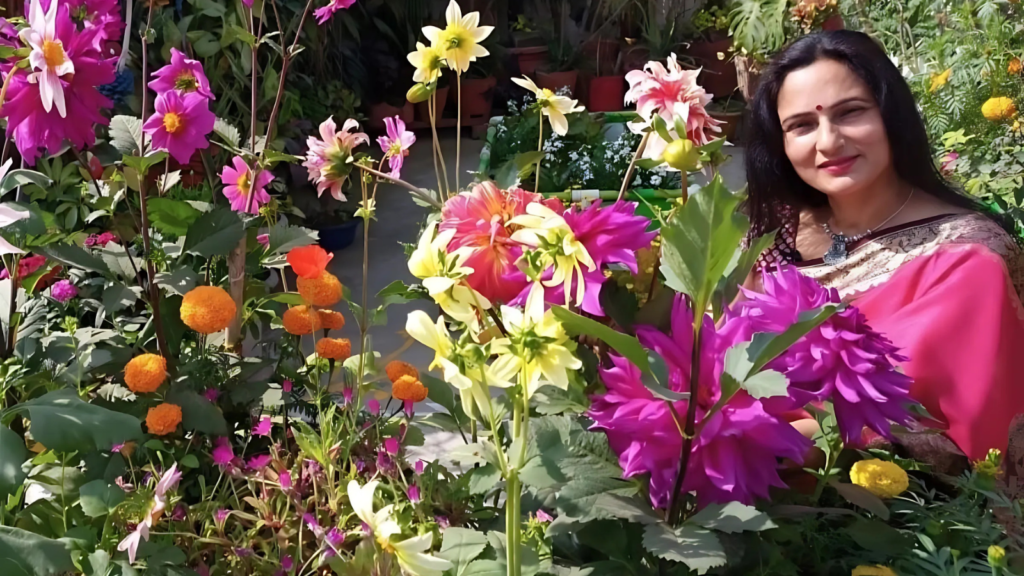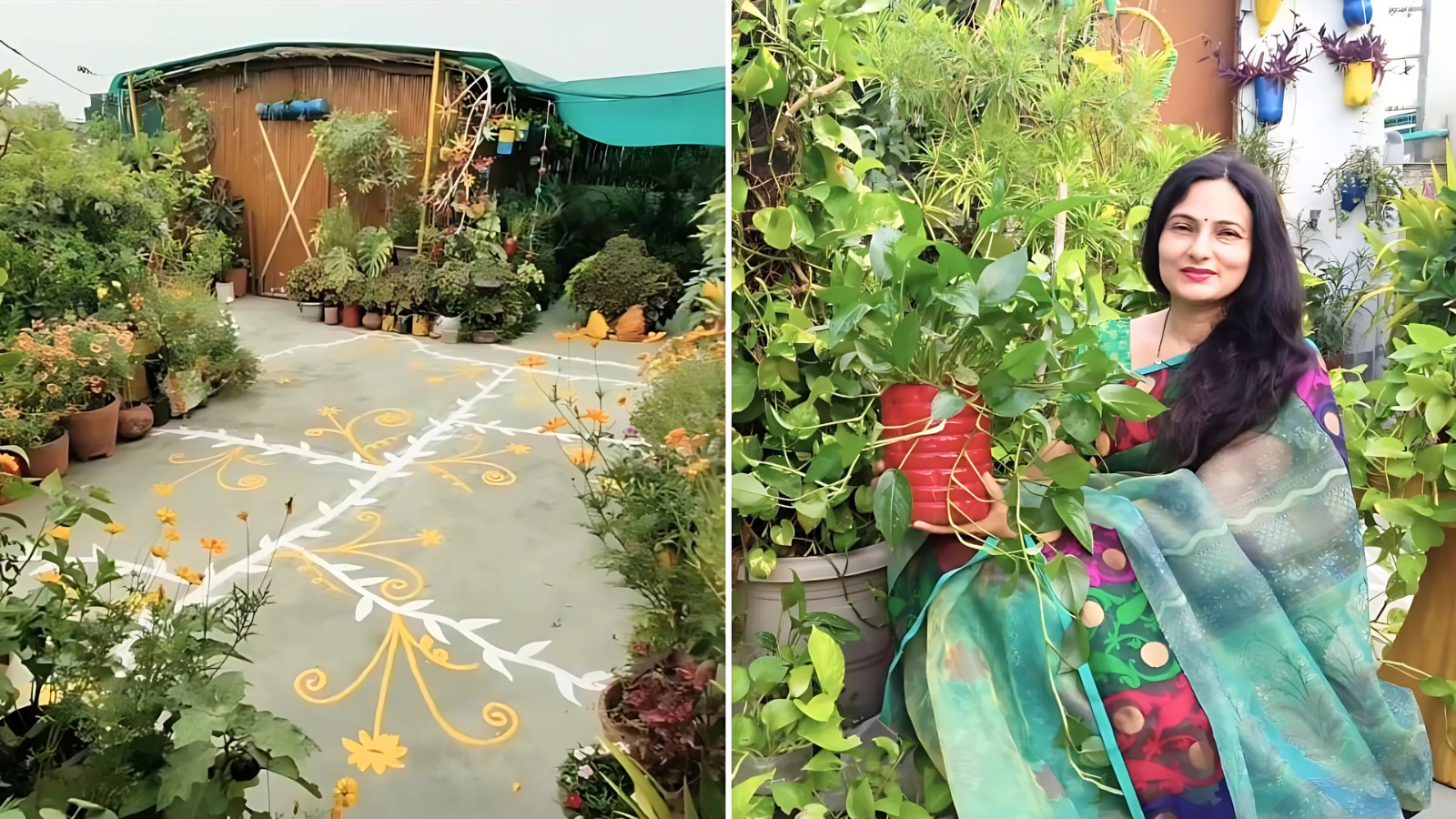Rashmi Shukla, a homemaker from Dwarka, Delhi, has turned her 1,000-square-foot terrace into a lush mini-forest that’s home to over 700 plants and a chorus of chirping birds. In a city choked by pollution, her garden is a sanctuary where bulbuls, sunbirds, tailorbirds, and sparrows nest, creating an ecosystem that feels like a slice of rural bliss. Rashmi Shukla’s 15-year journey of urban gardening proves that passion and perseverance can bring nature back to concrete jungles.

Originally from Patna, Rashmi grew up listening to her father, an agricultural officer, talk about plants. Though she loved nature, gardening wasn’t part of her life until she moved to Delhi. Early years in rented homes with limited space stifled her green dreams. But in 2010, when she bought a top-floor flat in Dwarka, the spacious terrace became her canvas. Starting with just five flowering plants, she faced a steep learning curve. “I knew nothing about gardening,” she admitted to The Better India, but her love for greenery kept her going.
Initially, Rashmi hired a gardener who relied on chemical fertilizers, but she soon embraced organic methods. She learned to make compost from kitchen waste, mix cow dung and coco peat for potting, and use milk sprays as a natural pesticide. Her garden now grows marigolds, dahlias, lemons, pomegranates, chikoos, and seasonal vegetables—all without chemicals. This organic approach attracted insects, which in turn brought birds. “For 10 years, my terrace has had nests,” she said, describing how her home echoes with birdsong. Eight active nests, including those of sparrows and bulbuls, are a testament to her success.
Rashmi Shukla’s garden is a model of self-sustainability. Fragrant herbs like lemongrass repel pests, while flowers promote pollination, reducing her workload. She tackles urban challenges—like water stagnation and mosquitoes—by elevating pots and planting strong-scented flora. A bamboo hut, crafted with local artisans, sits amid her plants, offering a village-like retreat in Delhi’s chaos. Her DIY spirit shines through in recycled pots made from old containers, proving resourcefulness is key.
The journey wasn’t without hurdles. Neighbors worried her garden would breed mosquitoes or clog drains, but Rashmi addressed their concerns with practical solutions. Balancing homemaking with gardening demanded sacrifices—long hours tending plants, experimenting with compost, and learning from failures. Her family, including her husband and children, supported her, but the garden is her personal triumph. “It’s my stress-reliever,” she shared, a sentiment echoed by visitors who find peace in her green oasis.
Rashmi Shukla’s impact extends beyond her terrace. Her YouTube channel, Create to Decorate, with over 300,000 subscribers, shares gardening tips, inspiring urbanites to grow their own food and flowers. Her work aligns with Delhi’s conservation efforts, like the Yamuna Biodiversity Park, which hosts 190 bird species. With 40% of India’s bird populations declining due to urbanization, her garden is a small but vital refuge. X users praise her, with one calling her “Delhi’s green warrior,” reflecting her growing influence.
In a city where air quality often dips to “severe” levels (AQI 400+ in 2025), Rashmi’s garden is a lifeline. It feeds her family clean produce, reduces her carbon footprint, and supports biodiversity. Her story mirrors others, like Bengaluru’s Anand Malligavad, who restored lakes, showing how individuals can fight environmental decay. As India aims for 33% green cover by 2030, Rashmi Shukla’s terrace is a blueprint for urban sustainability, proving that even in a concrete jungle, nature can thrive with care and creativity.

